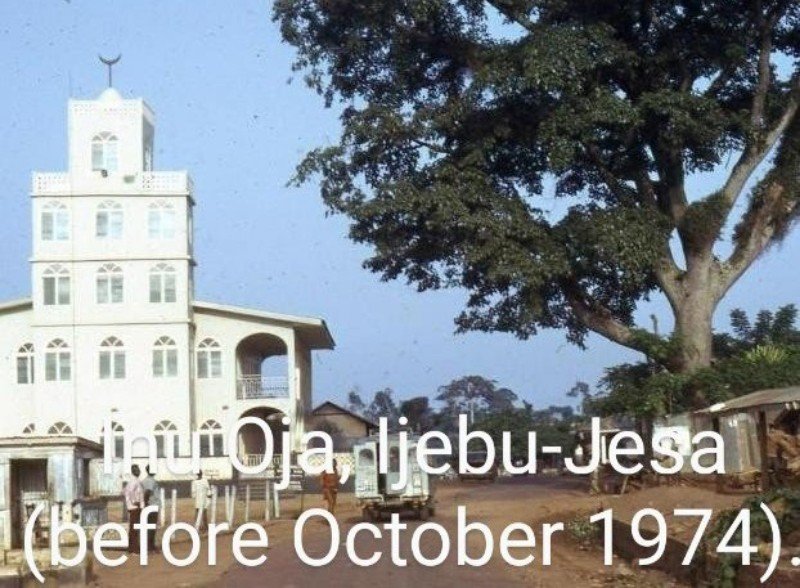Presidential Aide Alubankudi’s gracious response to the first part of this intervention reflects the significance of roots, responsibility, and collective effort in nation-building. It also accentuates the complexities of development, community dynamics, and leadership’s role in shaping Ijebu-Jesa’s future. She has promised to visit Ijebu-Jesa very soon, looking forward to “engaging, listening, and contributing more directly to the development of our community.” Of course, this commitment provides a meaningful framework for exploring our hometown challenges.
As we await further developments, a critical question arises: how did we get to this pass? According to Sunday Ojelabi, former Personal Assistant to the Elegboro of Ijebu-Jesa, “It’s undeniable that Ijebu-Jesa is blessed with citizens who truly love their origin, and this is evident in their demonstrated commitment over the years. Despite this, the town has suffered neglect from successive state governments and even less attention from the federal government.

“The community has provided buildings for every known government presence, including the Divisional Police Station, High Court, Magistrate Court of Appeal, Customary Court, and General Hospital. They also donated 50 hectares of land for the Local Government Secretariat, which now houses INEC, NOA and NPC. When Oba Agunsoye lobbied for the NSCDC Area Command, the community provided the necessary infrastructure.
“The irony is that the town maintains these facilities without government support, using funds raised at the annual Egboro Day festival for renovation works. This raises questions about why a community so supportive of successive governments has been overlooked in terms of development”.
During one of his state visits to Ijebu-Jesa in the Second Republic, Governor Bola Ige of the old Oyo State promised to convert the then Obokun Local Government Secretariat into a 60-bed hospital. Residents were elated! But that was where it ended! Had Ige had the opportunity to tar or dualize the road from Ilesa to, say, Esa-Oke via Ijebu-Jesa, the story of my hometown might have unfolded differently.
“The past”, they say, “is a bucket of ashes.” So, what’s to be done? To move forward, several next steps are crucial. In his book, ‘Stages of Economic Growth: A Non-Communist Manifesto’, Walt W. Rostow outlines a linear progression of economic growth through stages: Traditional Society, Transitional Stage, Take-off, Drive to Maturity, and Age of High Mass Consumption.
Rostow’s stages provide a framework for understanding the process of economic development and growth. Therefore, what’s to be done to overcome these longstanding challenges in my town is to establish cooperative movements, reinforce the current microfinance bank policies and look at the model of the Igbo town unions and their effectiveness. These are some of the things to be done; and it’s not rocket science!
It takes the committed sacrifices of selfless leaders like Nehemiah to rebuild and revive Jerusalem, while selfish figures like Sanballat and Tobias sought attention at all costs, to the detriment of the city. Similarly, undue attention-seeking sons and daughters of Ijebu-Jesa would take this town to nowhere.
There are towns like Ijebu-Jesa in India and Malaysia that have transformed beyond recognition over the past 40 or 50 years because their people have focused on new developmental strides and stages of growth. The citizens of my ancestral home should learn from this and work towards making it great. My hometown deserves meaningful development and recognition. This isn’t the time for populism or buck-passing! What we need now is decisive action. Sometimes, tough decisions must be made, even if they offend some, to drive progress.
Perhaps, the key to unlocking Ijebu-Jesa’s potential lies in finding a balance between tradition and modernity. ‘Owambe’ party is not development. ‘Owambe’ party is raising money to refurbish the schools, put in water systems and get healthcare development in place. That’s development, more so as these will trigger off all kinds of forces. Sinking a borehole at the edge of an already narrow and practically impassable road is also not development. It will only add to the problems!
Beyond the physical infrastructure, there’s a yearning for a systemic transformation that can catalyze economic growth, ensure fair representation, and address longstanding grievances. The call for modern projects, economic revitalization and rectification of electoral imbalances reflects our community’s determination to break free from the shackles of underdevelopment and assert its rightful place within the larger socio-political landscape.
What’s more? The decision-makers in Ijebu-Jesa must employ lobbying as a tool to market our hometown to the world around us and beyond. Northern leaders have mastered this approach, effectively lobbying for their children, which is why you find them in high places in significant numbers. In contrast, Yorubaland often falls short in this regard, with ‘I-me-and-myself’ attitude prevailing and stifling progress.
Given the significance of communal celebrations, this brings us to the organizers of the annual Egboro Day festival. Town festivals, as we know, are communal celebrations that promote cultural heritage, foster social bonding and promote collective identity. They play significant roles in preserving traditions and supporting local economies. Above all, they provide platforms for social commentary and community engagement. For example, Aliko Dangote is not from Modakeke in Osun State, yet he donated generously at the 39th Akoraye Day Celebration, which again supports the maxim, “We have great children but no great town”.
In the face of ongoing political realignments and reattachments, Ijebu-Jesa must adopt a strategic approach to ensure that sons of the soil occupy key positions. Events over the years have shown how challenging it has been to convince ambitious candidates to step aside for others, since each one is convinced of his or her own winning prospects. Often, reality sets in only after elections are lost or won, resulting in significant financial losses. This is complicated by supporters who fuel their candidates’ optimism with misguided assumptions and assurances.
The sweet truth about legacy is that it immortalizes our impact, lets our contributions outlive us, and turns our lives into lasting impressions. Legacy serves as a timeless echo of our existence. Another undeniable reality is that life is about service. Whatever heights we attain, someone has assisted us along the way. Of course, that ‘someone’ might have even been an ass! This raises a crucial need: Ijebu-Jesa indigenes should be more interested in supporting one another.
The stone may be hard, and the raindrops small, but acts of kindness can have a profound impact. It’s true I’ve faced my share of challenges, as have others. However, thanks to the kindness of individuals like Archbishop Olukayode Akinyemi, Oba Olasore, and Bishop Matthew Kukah, among others – some of whom I’ll write about later – my situation could have been worse.
Building on this foundation of kindness, specific examples stand out in my mind. For instance, Oba Olasore’s N19,000 over four academic sessions at the University of Ilorin (1992-1996) was a game-changer for me. Later, the Olufemi Fatodu Foundation’s N23,500 financial assistance during my postgraduate studies at Obafemi Awolowo University, Ile-Ife, was a welcome relief. This spirit of service, recognizing our shared humanity and impermanence, is what I envision for Ijebu-Jesa. Thankfully, Oba Agunsoye’s commitment to this spirit has been fantastically exceptional.
There’s a place called ‘Ojokoro’ in Ifako-Ijaye Local Government Area of Lagos State. The real meaning is ‘Ojo kò r’oko’ (Cowards cannot farm here). Now, Ojokoro is a town for all, courtesy of the bravery of certain individuals. Ijebu-Jesa needs similar bravery and sacrifice from its sons, daughters, friends, in-laws and those who have benefited from its opportunities.
In a word, genuine development requires sustained investment in men and materials, community engagement and accountable governance. Until these fundamental issues are addressed, Ijebu-Jesa’s potential will remain unrealized, and its residents will continue to wonder when development will arrive.
For Ijebu-Jesa, my Native Nazareth, as the saying goes, “a stitch in time saves nine”.
May the Lamb of God, who takes away the sin of the world, grant us peace in Nigeria!
•Concluded.
●ijebujesa@yahoo.co.uk;
●08033614419 – SMS only
.
Copyright Warning!
Disclaimer
Just to let you know, comments expressed here do not reflect the opinions of OHAFIATV News or any employee thereof. Also, every opinion expressed in any article is strictly that of the author(s), except where otherwise stated.


